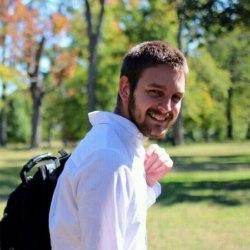California is America’s economic prison
It is easy to see how tightly the state micromanages our lives and businesses. Our high tax burden, powerful unions, government debt, and overbearing regulations all speak to California’s low economic freedom. Whether one examines the United States, California, or each of its counties, Californians live in an economic prison.
Country Freedom
The United States performs poorly against other nations when it comes to economic freedom. The Heritage Foundation’s world economic freedom index ranks the United States 17th (below Taiwan, Chile, and even Canada) due to poor fiscal health, high tax burden, and high government spending
Economist Jac Heckelman finds that economic freedom, measured using Heritage’s index, is a significant factor in determining growth. More importantly, Heckelman also finds that growth does not cause freedom but rather freedom causes growth.
Furthermore, economist Kristina Hristova finds that, of the index’s subcategories, monetary freedom, fiscal freedom, and government spending have the greatest effect on growth – the very measures the United States’ falls short on.
State Freedom
For the past 17 years California has ranked 49th in the Cato Institute’s economic freedom index, beaten only by New York in what seems to be a brutal race toward economic destitution. With California coming in 50th for labor-market freedom and occupational licensing restrictions, our overall advantage over New York is narrow.
Economist Russell Rhine also ranks California 50th for economic freedom during 1980-1990 and 2000-2005. Rhine finds a strong positive relationship between economic freedom and employment growth, concluding that “less restrictive state and national government labor market policies have the greatest impact on employment growth in U.S. states.” Rhine also determines that economic freedom accounts for “roughly 2 to 5 percent of the variation in employment growth across states” – a chilling forecast for the future of the Californian job market.
County Freedom
Metropolitan areas are no exception to the rule that economic freedom largely determines wealth. Economist Dean Stansel concludes that Californian cities make up 10 of the 20 least economically free metropolitan areas in the country.
According to Stansel, “higher levels of local economic freedom are found to be correlated with positive economic outcomes.” One of the most profound insights from Stansel’s paper is that moving from the 5th (least free metro) to the 4th quintile causes a drop in unemployment of 0.9%.
To add to our unemployment issues, a lack of economic freedom appears to be driving many people out of California – with a net migration rate of -4.9% between the year 2000 and 2014. Population loss significantly reduces California’s ability to enable a strong workforce and increase production.
Conclusion
As shown, there is a wide consensus amongst economists that economic freedom and institutions are strong determinants of economic growth. Economist Thomas Garrett identifies two channels whereby economic freedom increases growth: “(i) by encouraging higher levels of entrepreneurial activity and small business creation and (ii) by reducing the costs, both financial and regulatory, on existing businesses in the state”.
Overall, California counties are the least free localities, in one of the least free states, in one of the least free advanced industrial countries. Fortunately, Cato offers several ways forward if California ever aspires to move up the ranks for economic freedom: reduce indebtedness, cut retirement expenditure, pass right-to-work laws, and overturn local zoning rules. It is time to free California from the shackles of big government and release Californians from the state’s economic prison.
Nicholas spent the past two years studying throughout the United States on exchange from the University of Queensland, Australia. Prior to becoming a policy research intern at the California Policy Center, he interned at the Professional Research Institute for Management and Economics in Cambodia and at the Buckeye Institute in Ohio. When he is not studying, you’ll often find Nicholas telling good (and bad) jokes to his mates…though he is not very koala-fied to tell them.
